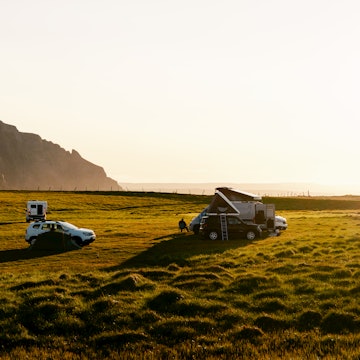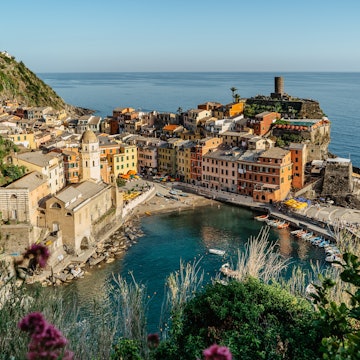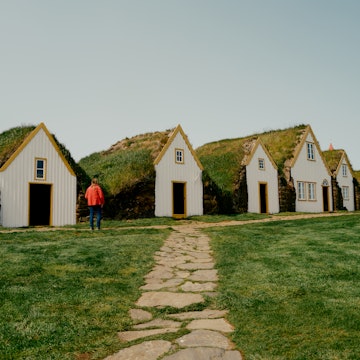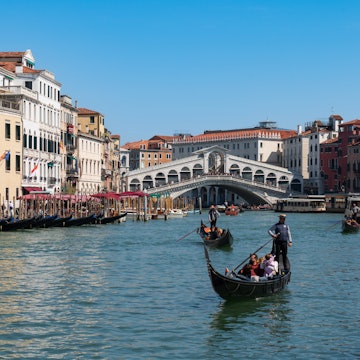

Reynisfjara Beach on the South Coast of Iceland. Daniel Dorsa for Lonely Planet
There’s no such thing as the perfect time to visit Iceland, because the weather is notoriously whimsical and the best season for your trip depends entirely on what you want to experience.
Mid-summer is glorious with eternal daylight courtesy of the midnight sun. This is the time for hiking, camping and exploring the wilderness; it's also when you'll find the most open services. The downside is that many destinations will be packed with tourists.
Whenever you choose to visit Iceland, pay attention to forecasts and road conditions and follow any safety advice issued by Icelandic authorities.
Here's all you need to know about the highs and lows of different seasons in Iceland.
You came to Iceland for the Northern Lights
December to January is the best time for seeing the Northern Lights
Weather in Iceland in December and January: Winter weather includes rain and snow. Temperatures can be cold – from -1°C to 4°C (30°F to 39°F) – and often drop below freezing at night.
Christmas lights brighten up the darkness, and a festive spirit is in the air as the dark season nears its peak. Frost glitters, and snow transforms landscapes into winter wonderlands. Christmas markets are held in Heiðmörk outside Reykjavík, in Hafnarfjörður and on Ingólfstorg Square in Reykjavík, which has the added bonus of an ice rink. If conditions are right, the first ski resorts open, as well.
The sparse daylight gives you a better chance of seeing the Northern Lights, especially outside populated areas where there is less light pollution. (Find a Northern Lights forecast to plan your excursion.) Joining tours is advisable. While it is possible to drive yourself, road conditions are often slippery, and snowstorms are common.
Festivals worth checking out in winter include Dark Music Days and þorrablót mid-winter feasts, celebrated around the country. For the brave, restaurants often serve special þorri food like fermented shark meat and boiled sheep's head.

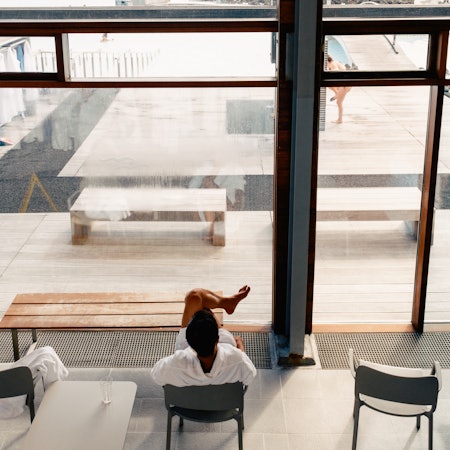
February to March is the best time for snow sports and hot springs
Weather in Iceland in February and March: Weather continues to be unpredictable, with rain and heavy snow, as well as sun. Average temperatures are around 0.4°C (32.7°F).
It’s still dark and cold, so communities brighten up the darkness with events like the Winter Lights Festival in Reykjavík and List í ljósi festival in Seyðisfjörður in the East. In narrow fjords in the Eastfjords and Westfjords, inhabitants celebrate the return of the sun with sólarkaffi and have pancakes.
Spring is an abstract concept in Iceland, as the weather doesn’t always play along. It can still be cold and snowy, but the days get longer and the sun sometimes shines on skiers – this is often the best time for snow sports. The first of the migrant birds arrive, and slowly but surely, nature springs back to life. Around Easter, events like Easter egg hunts are a fun family activity.
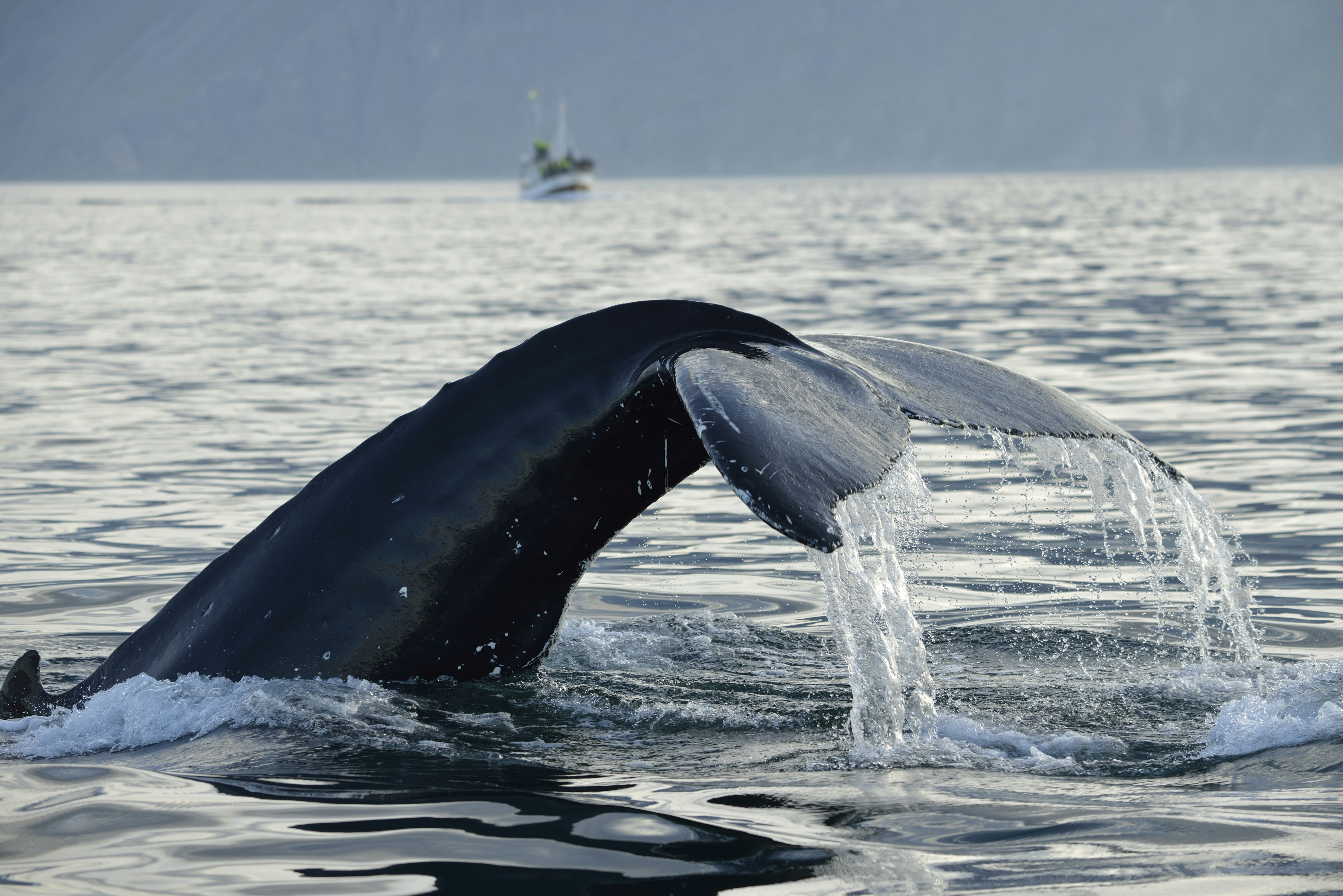
April to May is the best time for off-peak travel
Weather in Iceland in April and May: While the weather is still unreliable, temperatures gradually rise. Temperatures depend upon which region you're in, but April averages 3°C (39°F) to 6.8 °C (44°F); in May, you can expect anywhere between 2°C (35.6°F) to 10°C (50°F).
The first flowers blossom and trees bud. Migrant birds arrive in flocks, and lambs and foals are born. Migrant whales have also returned, and better weather makes whale watching more enjoyable. The bird-watching season begins, too, although some areas may be closed due to nesting.
There are relatively few tourists around and if conditions are good, this can be a good time for a road trip. Look out for off-season discounts on accommodation and activities. However, not all tours and services have opened up yet.
The first Thursday after April 18 is the official First Day of Summer in Iceland, which is celebrated with parades and events around the country – even though the weather rarely plays along. In Ísafjörður, the Aldrei fór ég suður music festival is held, and Ski Week happens around the same time.
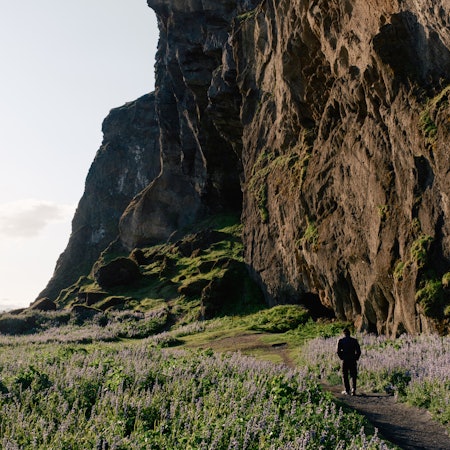

June to August is the best time for outdoor recreation
Weather in Iceland from June to August: Summer brings 24/7 daylight to Iceland, and while there’s no good weather guarantee, this is your best chance for sun and warmish temperatures. June's average temperature is 9°C (48°F); July's is 13°C (55°F); and August's is 10.3°C (50.5°F). Rain is still possible, and temperatures can drop at night. By late August, it starts to get dark between 8pm and 10pm.
Late June to early August is when most Icelanders go on vacation, filling up campgrounds wherever the best weather is forecast. This is the height of the tourist season – and height of the whale-watching season – so whatever you have planned, it’s best to book ahead.
Expect crowds at the most popular destinations, like on the South Coast and the Golden Circle. But as it’s bright all night, you can beat the crowds by traveling either super early or late. In July, Highland roads open up, but you'll need to book a tour or hire a 4WD vehicle equipped for F-roads (mountain roads) and crossing rivers (if that’s your plan). Summer is the best season for hiking, biking and horseback riding. Around mid-August, wild berries ripen.
Summer is also festival season. Fishermen’s Day is a national celebration held in every seaside town on the first weekend of June. Around June 21, summer solstice is celebrated on Grímsey Island, Iceland’s northernmost inhabited island. The Reykjavík Arts Festival is held every other year – the next one is on in 2026.
Bræðslan music festival is held in Borgarfjörður Eystri on the last weekend of July. Verslunarmannahelgi is a weekend in August that is packed with festivals and events, and Reykjavík Pride has various events held throughout the city, culminating in the Pride Parade.
Reykjavík Culture Night and the Reykjavík Marathon are held in late August.

September to November is the best time for cultural events
Weather in Iceland from September to November: Nights grow longer and colder, and camping is no longer advisable as fall rolls into winter. The weather is often good, though, so hiking can still be enjoyable. Pay attention to weather forecasts and bring warm clothing.
Nature starts to change colors, painting forests and heather yellow, orange and red. Þingvellir National Park is at its most beautiful. Road tripping is still possible, and there will be fewer travelers around. However, winter is around the corner, so conditions can get stormy and roads get slippery as soon as the temperatures drop.
Réttir sheep and horse roundups are held in the countryside, and the Reykjavík International Film Festival takes place in the capital. Iceland Airwaves music festival is held in Reykjavík in November. Advent is approaching, as well, and Christmas preparations begin. This is a great time for visiting galleries and museums, going to concerts, relaxing in heated swimming pools and feasting on good food.
Elsewhere Explains Daylight In Iceland









